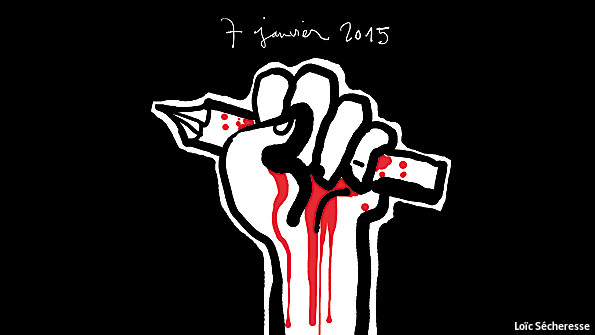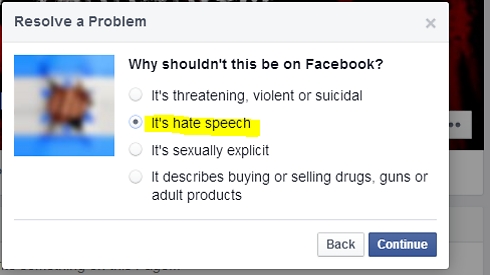Many events have captured my mind over the past weeks in regards to our national identity, it could be about the many people across the kingdom who sympathised and supported various regions in the wake of storm Desmond, the celebratory mood around Christmas or even the haggling/national spirit of Black Friday that seems to dis-unifying Britons in the name of capitalism.
But I decided to choose freedom of speech as theme to discuss, as although it has not been making the headlines that it was during the Charlie Hebdo incident last year, it is still having a massive influence on the way we conduct, express and restrict ourselves in British society.

Is freedom of speech worth dying for if we don’t even know what it means?
Our government loves to claim that freedom of speech is one of the hallmarks of modern British society. But it is still an unclear and muddled concept that has made me change mind quite radically on the matter. The definition of freedom of speech is outlined by the Uk Human Rights Act 1998: “Everyone has the right to freedom of expression. This right shall include freedom to hold opinions and to receive and impart information and ideas without interference by public authority and regardless of frontiers”. This seems to allow the right to speak freely without any governmental obstruction.
But the second part of the speech seems to contradict that: “The exercise of these freedoms….may be subject to such…restrictions…in the interests of national security, territorial integrity or public safety, for the prevention of disorder or crime, for the protection of health or morals..“. In my opinion, one key question from this passage remains unanswered: which morals need protecting? Surely our justice system could just apply whichever ‘morals’ that seem applicable to the situation. The official definition is just too subjective and thus too open to interpretation and manipulation.
I also believe that the term ‘freedom of speech’ is in it self a misleading term. As the term ‘speech’ seems to only imply words, but of course speech can express itself in pictures and videos. Which brings me upon book publications. Many people assume authors automatically decide their own front covers and titles, but this is not the case as it is the editors who generally have the final say in producing a front cover that can maximise sales after publication. There is a similar occurrence within the newspaper industry with many editors often drastically altering the titles in order to garner a larger audience. Surely this must be seen as a breach of freedom of speech, as the opinions and voices of writers is being distorted to achieve some material gain.
In my opinion this is the dangerous and subtle erosion of freedom of speech. Mainly because it doesn’t prevent the writer from expressing their opinions but it warps the image of their expressions while convincing the audience that nothing has been changed.
I also think it is worth mentioning the fact that last year the National Youth Centre cancelled a play that would tackle the issue of radicalizasion amongst young British citizens. The decision to cancel this has been widely condemned in the media and the public domain. Apparently the reason is mainly down to the fact that the NYT were not sure that the play would be successful in “meeting all of our aims to the standards we set and which our members and audiences have come to expect”. Interviews from the cast and director have suggested the reason for the cancellation was because the play asked controversial questions regarding radicalization. I believe that the cancellation falls very dangerously in the category of censorship and demonstrates how the denial of freedom of speech can operate in different domains under political correctnes.
The methods and techniques of censorship have evolved incredibly, much of that is down to the evolution of technology. For example in seventeenth century England, censorship was relatively easier to regulate and enforce as all books and printed texts had to be registered and licensed prior to publication, there was an even a law enacted in 1637 which stated which print publishers you could work for and that all printed texts and reprints had to be licensed and written in an official record book which was monitored by the government. Evidence shows that although, some illegal prints slipped through, towards 1640 all unlicensed copies of ballads sank to zero. Nowadays, in the 21st century the methods of censorship are becoming more ill-defined with the introduction of the internet and social media in particular. We now have the technology to trace, censor and suppress people’s opinions on social networking sites with ease.

Show we have the right to determine what is hate speech?
In my opinion the justification for freedom of speech and what is classified as hate speech are two sides of the same coin. How are we allowed to express ourselves without interference if our opinions are to be suppressed because of the subjective notion of ‘hate speech’?.
In my opinion many of us seem to forget that even though we may all have the ability to speak freely, many of us are able to expose our message with greater advantage. For example our Queen has the benefit of speaking to her ‘subjects’ in a designated timeslot ever year during the Christmas holidays; a privilege that many of us (including politicians) will never be able to hold. Now one can argue, that she is a figure of national and religious solidarity and thus she deserves her ability to speak freely. However, it must also be remembered that she is an unelected individual who’s political and social contribution is very limited. It could be argued that it may be better to give that television time to our Prime minister; someone who actually wields greater political power and who is ‘meant’ to represent our views. To me, this is a clear demonstration of how freedom of speech is not equally or fairly distributed, it may also send out the subtle message that those in more privileged positions have the right to more exposure than those in a lesser position.
All of these contradictions and conflicts in our ability to express ourselves freely damage our capability to have a free and open debate about controversial issues in society. I believe this is having a negative knock on effect on radical views in society, it seems that many extreme perspectives that do not correspond with mainstream thought are festering and growing into ideologies that are much more radical and dangerous. Marginalised groups of society are congregating on racist websites such as Stormfront Britain because there is no other public domain which they are allowed to engage in. I understand about the threat that extremist groups pose to our ‘solidarity’, but it is important that these groups get significant representation in public debates, otherwise we will continue to fail in justifying our label as a free and tolerant society. I do not wish to revert back to a world in the 1630, where writing anonymously was the only way to voice your opinion without persecution. If we wish to have a public sphere that upholds the principles of liberty we must have a more concrete idea of what freedom of speech means in 21st century Britain.